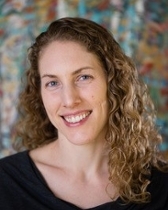The speaker lineup is set for the fourth day of the July 2022 MSE virtual symposium, which is focused on “Community engagement and collaboration”. This session will feature three talks featuring researchers who have experience creating research with communities. This session will explore different styles of interdisciplinary collaborations centered on community needs, such as community advisory boards, community partnerships, community-led research design, and how to implement this into microbiome research. Our hope is that attendees for this session learn from different perspectives how foster their own community connections which would benefit their work.
The program for the July 2022 MSE virtual symposium, “Developing transformative Research Skills”, is beginning to take shape as we continue to confirm speakers for the 5 sessions, the full program for which can be found here.
Session 4: “Community engagement and collaboration”
Thursday, July 21st, 12:30 ~ 16:00 EST. Register for this session.
Session leaders:

Mustafa Saifuddin, Ph.D., Staff Scientist, Sustainable Food and Farming Program at Earthjustice

Ashley M. Toney, Ph.D., Postdoctoral Research Fellow, UTHealth School of Public Health, El Paso. Translational/Clinical Nutrition Researcher focused on Latine Health Disparities.
Scope: Due to the interconnectedness of microbial processes and social justice, many types of microbial research could benefit from closer collaborations with communities impacted directly by the public health, environmental and climate justice implications of microbiomes. Some styles of microbiome research would yield more positive outcomes if the collaboration was built around mutual long-term goals, instead of specific projects, and if it was initiated during project conceptualization instead of after the project has been designed. This session will explore different styles of interdisciplinary collaborations centered on community needs, such as community advisory boards, community partnerships, community-led research design, and how to implement this into microbiome research.
Learning Objective of Session: Attendees will learn 1) approaches to community-centered collaborations, 2) how to leverage community professionals (e.g. health workers) in a ‘train the trainer model’, 3) how to start ethical conversations around environmental samples & broader experimental design, and 4) how to emphasize collaborations – including public health, government, policy makers, etc. as a collaborator and how to ask for their help/mindful collaborations.
Format of talks: Three 30-min lecture-style talks from researchers who have successfully built research collaborations with communities.
Format of breakout rooms: Each room creates a plan for engagement, and each room has a designated topic area (e.g. environmental restoration) to help audience members group by research discipline.
Session Speakers:

Dr. Pajau (PJ) Vangay, PhD. Science Community Manager, National Microbiome Data Collaborative, Lawrence Berkeley National Laboratory.
“Advancing microbiome science, in partnership with communities”

Dr. Arbor Quist, PhD., Postdoctoral Fellow in Environmental Justice & Community-Driven Epidemiology at the University of Southern California.

Dr. Rosie Alegado, PhD., Associate Professor of Oceanography & Sea Grant College Program at University of Hawaiʻi at Mānoa
12:30 – 14:15 Introduction and Speakers
14:15 – 14:30 Break
14:30 – 16:00 Breakout room discussions based on skills development, in smaller groups
- Topics in development
Prior to this session, you may want to watch these recorded talks:
- “An Indigenous Micro- to Meta-Narrative: Microbes and Social Equity”. Dr. Nicole Redvers, ND, MPH.
- “The Global Microbiome: microbes and public health beyond biology”. Dr. Amber Benezra, PhD.
- “Social and ethical implications of human microbiome research”. Dr. Kieran O’Doherty, PhD.
- “Investigating social determinants of health and social equity among Veterans; a United States-Veteran Microbiome Project”. LTC. Andrew J. Hoisington, Ph.D.
- “Risk factors for colonization with antibiotic-resistant bacteria in Guatemala and East Africa”. Dr. Douglas Call, PhD.













